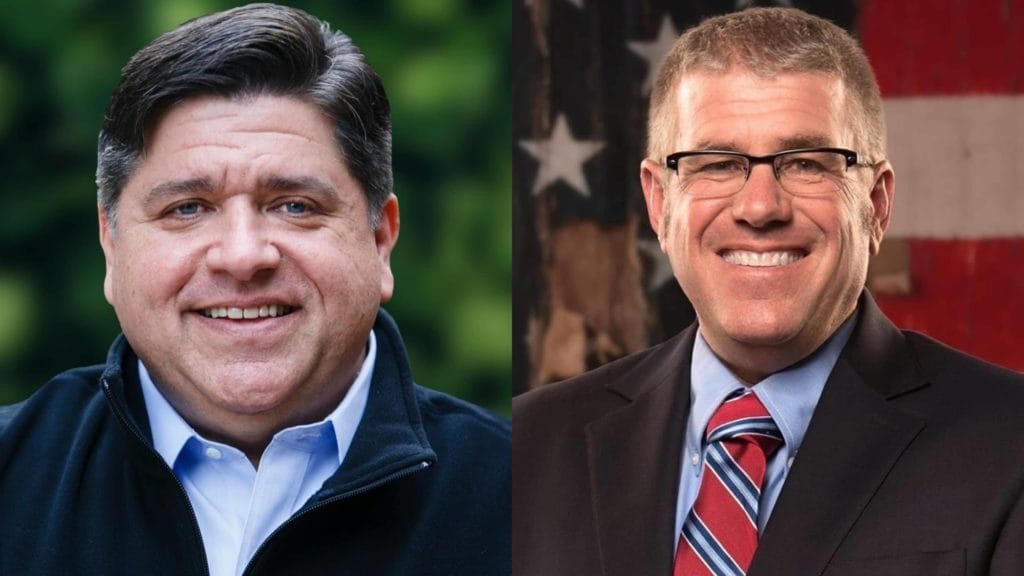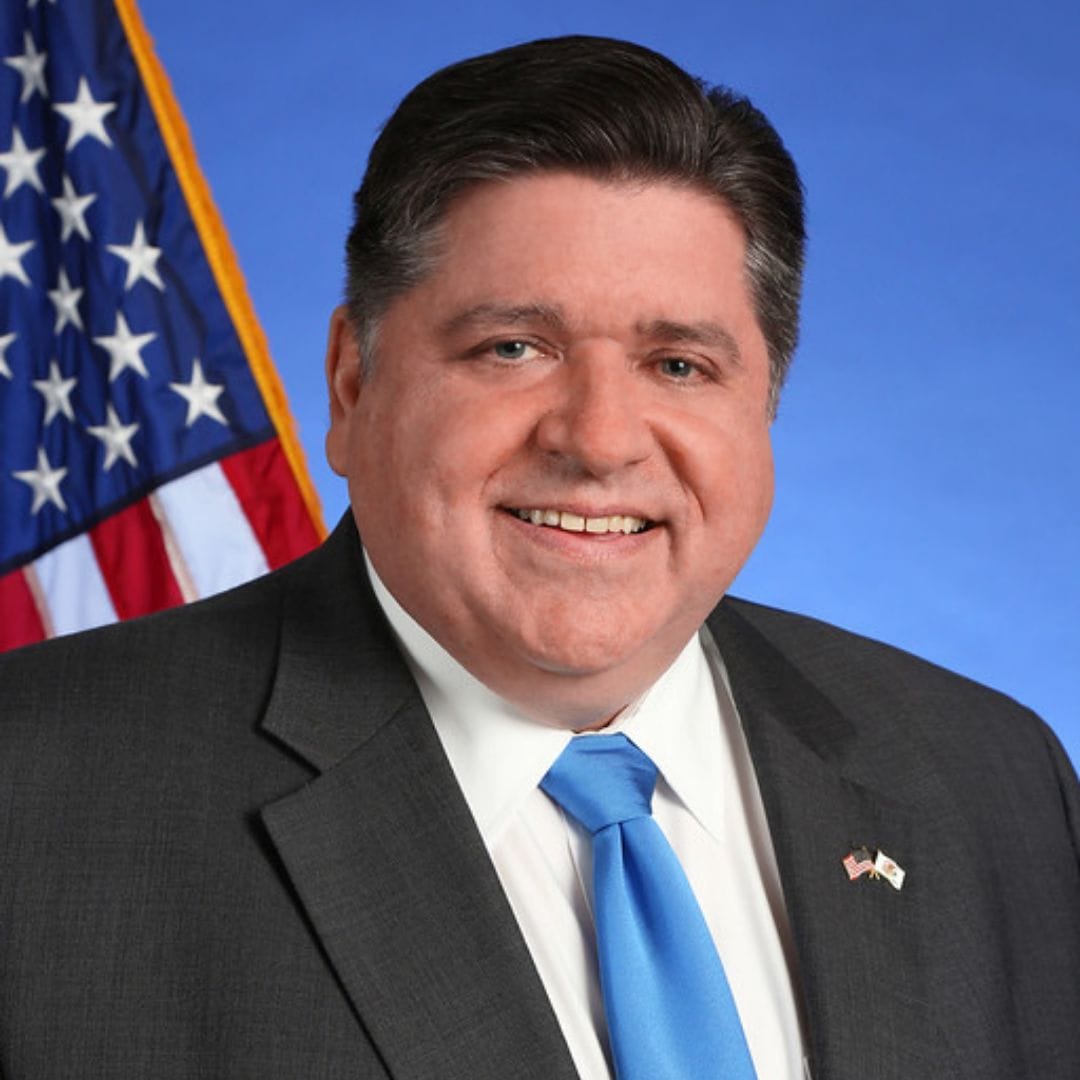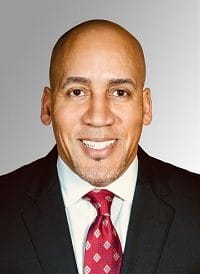The interview was at the Marriott Marquis near McCormick Place. It was the morning after the June 28 Primary was over. Governor J.B. Pritzker won the Democratic nomination and was already looking ahead to the General Election in November. His opponent will be Darren Bailey, who with an endorsement from former President Donald Trump, trounced his opponents in the Republican Primary.
As Gov. Pritzker’s first term winds down in Springfield, Federalism is re-emerging in American politics. Trump and the U.S. Supreme Court seeks to give more power to states across the country. With the overturning of the landmark Roe v. Wade Supreme Court case, Republicans are determined to seize Illinois as Gov. Pritzker remains on alert of their conservative agenda that may affect the state’s 1.8 million Black residents. In 2018, Pritzker ousted another Republican named Bruce Rauner, who wanted to close Chicago State as he created a two-year budget crisis that imperiled health clinics and social programs throughout the Prairie State.

Today, Gov. Pritzker’s biggest enemy may be the state’s economy and crime. Inflation is hitting residents in Illinois and the rest of the country hard at gas pumps and supermarkets. Crime has spread to affluent white neighborhoods and suburbs.
Republicans seek to paint Gov. Pritzker as a leader who’s soft on crime and heavy on taxes, as inflation fuels concerns of a recession. It’s especially a concern for Blacks, one of Gov. Pritzker’s largest voter bases that may suffer like the 2008 recession where Black homeowners had the highest foreclosure and unemployment rates.
Now, Gov. Pritzker, the nephew of a tycoon who founded the Hyatt Hotel chain, is worth $3.6 billion. Upon taking office, he decided to work for free instead of accepting his $177,000 salary. He spent $35 million of his own money on his re-election campaign. Gov. Pritzker’s wealth, privilege and influence may make him immune to a recession and distant to the Black struggle, but with Juliana Stratton, a Black female lieutenant governor, he stays level-headed and grounded with problems of the common voters.
With inflation and crime threatening his re-election hopes and securing the Black vote, Gov. Pritzker is talking more about his successful efforts in raising the state’s minimum wage and his sweeping criminal justice bill that he signed in 2021.
But during the interview, Gov. Pritzker was reminded of another reality with a question about the lack of Black-owned cannabis dispensaries in Illinois. More than a year after recreational pot hit the shelves, the $670 million made has gone mostly to white men. The state gave Illinois’ existing medical dispensaries the opportunity to get started first. When the state set up a lottery process to hand out 75 new licenses meant for social equity applicants, only 21 applicants were chosen and most of them were white. Rejected applicants started to sue. Many angry Blacks talked about voting for Richard Irvin, who like most Republicans is big on business and preaches the gospel of American capitalism. To this day, Blacks are not happy about being shut out of a business that many helped create.
“I’m not happy about that either,” Gov. Pritzker told the Crusader. “If these cases hadn’t gone to court, if we didn’t have all these lawsuits, we would have issued all these licenses long ago. Now finally we’ve got these cases going through, finishing up in the courtroom and we’re issuing those licenses. We’ve got 185 licenses in one case. We’ve got 55 licenses that are being authorized this summer that are going to Black and brown owners. The whole aim of cannabis legalization had a social equity focus. Everyone is focused on the licenses themselves. They are very important, but there were other components.
“One of the reasons I was in favor of cannabis legalization is because the laws are being prosecuted inequitably. Eighty percent of people getting caught, arrested and convicted were Black and brown. You and I both know that there are plenty of people in the white community who could have been caught and weren’t arrested or sent to jail. They didn’t have to pay a fine or weren’t criminalized. The laws were inequitably applied, and it’s something that shouldn’t have been illegal to begin with.
And so, ending that was a focus on equity for Black and brown communities. In the process of doing it, I expunged 500,000 arrest records of low-level cannabis convictions. Most of those Black and brown people as a result of the arrest records had trouble getting jobs or renting apartments because they had to check a box on an application. By expunging their records, it finally frees people to be able to get those apartments and those jobs. The third component – by the way 20,000 pardons for people who were convicted of low-level cannabis convictions and more soon to come. Component No. 3 is creating Black millionaires and making sure we’re providing dispensary licenses – an opportunity to people who were the most affected by the War on Drugs.”
Gov. Pritzker said his greatest contribution to Black residents in the state is raising the minimum wage to help struggling families make a decent living.
“The first thing that I did that I got passed and signed when I came into office was raising the minimum wage. Taking the minimum wage from $8.25 to $15 lifted more than a million people out of poverty in the state. The majority of people who earned minimum wage in this state are women of color. The vast majority of them are Black women.”
The state’s minimum wage law requires annual $1 increases in hourly pay. On January 1, the minimum wage had increased to $12 an hour. By 2025, it will be $15 per hour.
Gov. Pritzker also boasted about having a diverse cabinet in his administration. Blacks head many positions. In 2021, Gov. Pritzker appointed Howard University Alum Danielle Perry as Cannabis Officer at the Illinois Department of Financial and Professional Regulation. Harold Mays serves as director of the Illinois Department of the Lottery. Rob Jeffreys is director of the Illinois Department of Corrections. Marc D. Smith is director of the Illinois Department of Children and Family Services. Perhaps Gov. Pritzker’s most high-profile appointee is former Illinois Department of Public Health Director Dr. Ngozi Ezike, who left in March after guiding the state through the coronavirus pandemic.
“I believe you got to have leaders in government who look like the communities we need to have represented,” Gov. Pritzker told the Crusader. “Just to give you an example, never before has there been a Black leader of the Department of Transportation, where there are so many contracts that can get awarded to Black and brown contractors. There’s a lot of work to be done to make sure that general contractors who are often owned by whites give subcontracts to Black-owned contractors.”
In February 2021, Gov. Pritzker signed into law one of the largest and most comprehensive sweeping criminal justice bills in Illinois history. Some of the measures in House Bill 3653 require the use of body-worn cameras by police departments statewide. The new law also expands accountability across police departments by requiring the permanent retention of police misconduct records and removes the sworn affidavit requirement when filing police misconduct complaints. The new law also eliminates license suspensions for unpaid fines and fees due to red light camera and traffic offenses. It also requires police departments to develop plans to protect vulnerable people present during search warrant raids.
“Let’s be clear when we talk about criminal justice. There are two important components. One is we have to keep our communities safe. Black communities deserve the same public safety that white communities have had…. The other part is we know that sometimes there are accountability issues in police departments, and it’s not just Chicago. It’s across the state. And so, holding people accountable for their actions especially when they are doing it under the color of law with a uniform on, that’s something we got to make sure happens as well. It’s about protecting all of our communities.”










